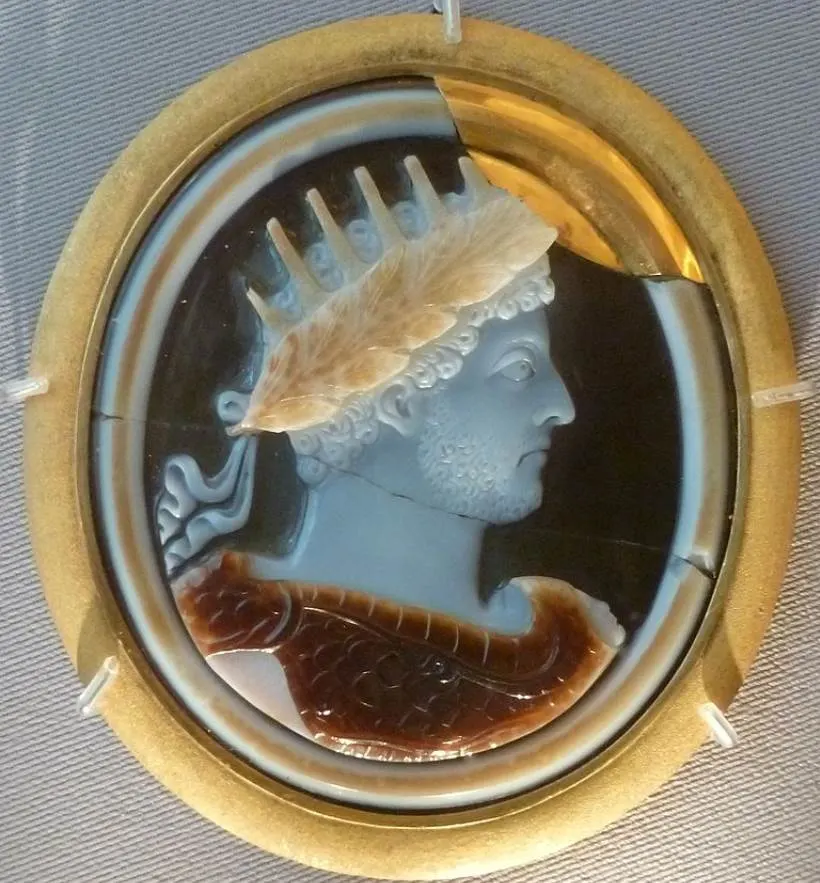What happens when you give immense powers to an adolescent with a tendency to develop a severe personality disorder? Nothing good, that’s for sure!
In this post, we’ll take a closer look at some interesting facts about Commodus, an infamous Roman Emperor who singlehandedly ended peace in the Roman Empire in the 2nd century!
1. He was the son of an Emperor and an Emperor’s daughter
Commodus was born “Lucius Aelius Aurelius Commodus” on August 31, 161 A.D., in the ancient city of Lanuvium near Rome. He was the son of Roman Emperor Marcus Aurelius, famously known as the “Philosopher King.”
His mother, on the other hand, was Faustina the Younger. She was the first cousin of his father and the youngest daughter of another Roman Emperor named Antoninus Pius.
Commodus had a twin brother named Titus Aurelius Fulvus Antoninus who died at the age of 4, and a younger brother named Marcus Annius Verus, who died in the year 169 A.D.
This pretty much left Commodus to be the sole heir to his father, something that appeared to be the intention of his father all along.

2. He was given a prestigious title during an infamous war in 172
The reign of his father was marked by war, and one of these wars was called the Marcomannic Wars, fought against the Germanic Barbarians on the northern frontier.
It appears that Commodus was present at Carnuntum, a Roman legionary fortress in modern-day Austria, in the year 172. It’s assumed that it’s here that he received the title of “Germanicus,” a victory title for one of the battles fought that year.
Just a few years later, on January 20 of the year 175 at the age of 13, he entered the College of Pontiffs. This clearly indicates that he was pursuing a career in politics from early on.
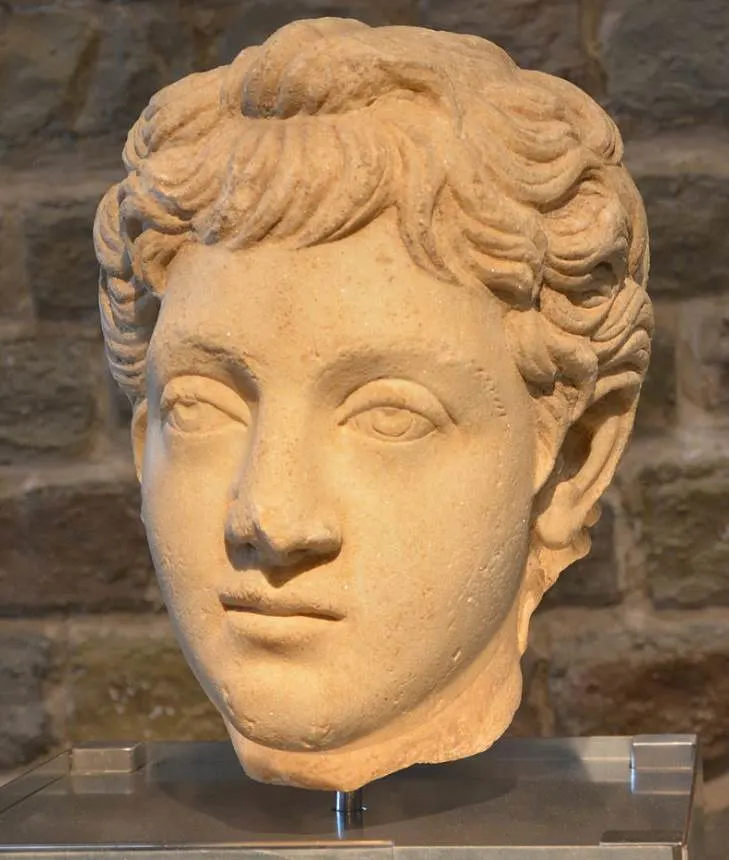
3. He became co-emperor with his father at the young age of 15

On November 27, 176, his father made his intentions official. He granted him the title of “Imperator” at the age of 15, and made him “Augustus” the year after.
This means that the 15-year-old boy was now the co-ruler of the Roman Empire together with his father Marcus Aurelius. He was also made a consul around this time, making him the youngest person in the Roman Empire to ever achieve this up until that point.
Not many people could have guessed the outcome of his infamous rule back then. This would eventually become very clear when he became the sole ruler after his father passed away on March 17, 180.
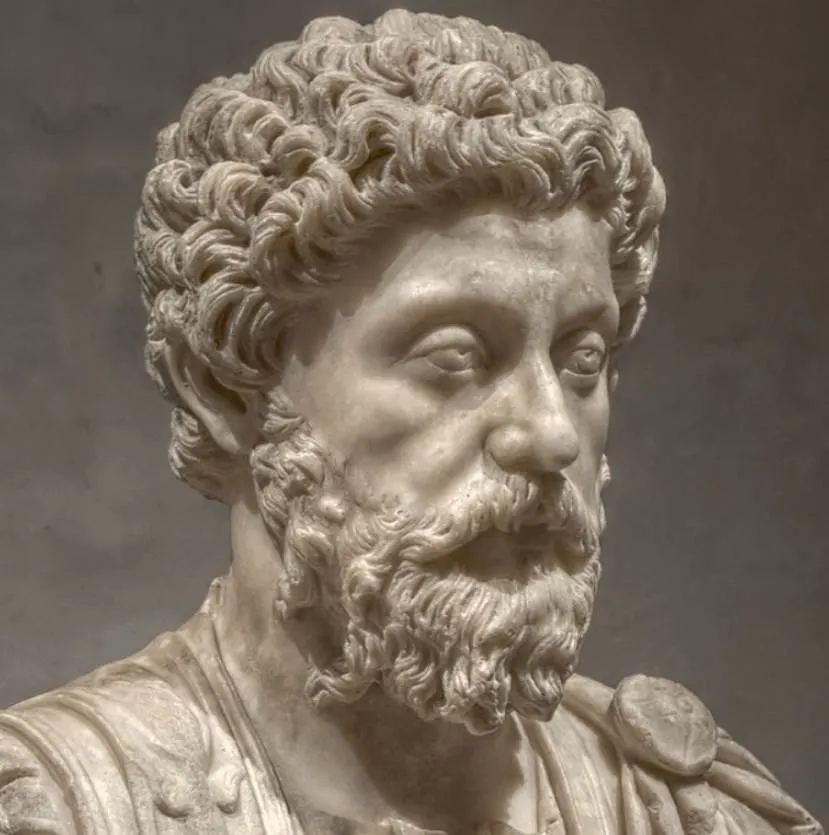
4. He was the first Emperor to be “born in the purple”
At the young age of 18, Commodus became the sole ruler of the Roman Empire. Even though Emperor Vespasian had two sons who succeeded him, Titus and Domitian, they weren’t born during his reign.
This means that Commodus was the first Roman Emperor who was actually born during the reign of his father, something referred to as “being born in the purple.” After all, purple was the color of wealth and power in Ancient Rome.
5. He didn’t have much interest in actually running the Roman Empire
One of the most remarkable facts about Commodus is that he didn’t really care about running the Empire. He surrounded himself with allies who did most of the work for him, but who were secretively using him for their own personal interests.
He also wasn’t popular with the Senate because he taxed them to organize lavish games. This was obviously something that made the people of Rome extremely happy during his reign.
Because of this, he constantly had to fear for his life as many people conspired against him. The result was that Commodus became a true dictator as he was forced to take charge, resulting in numerous executions of conspirators.
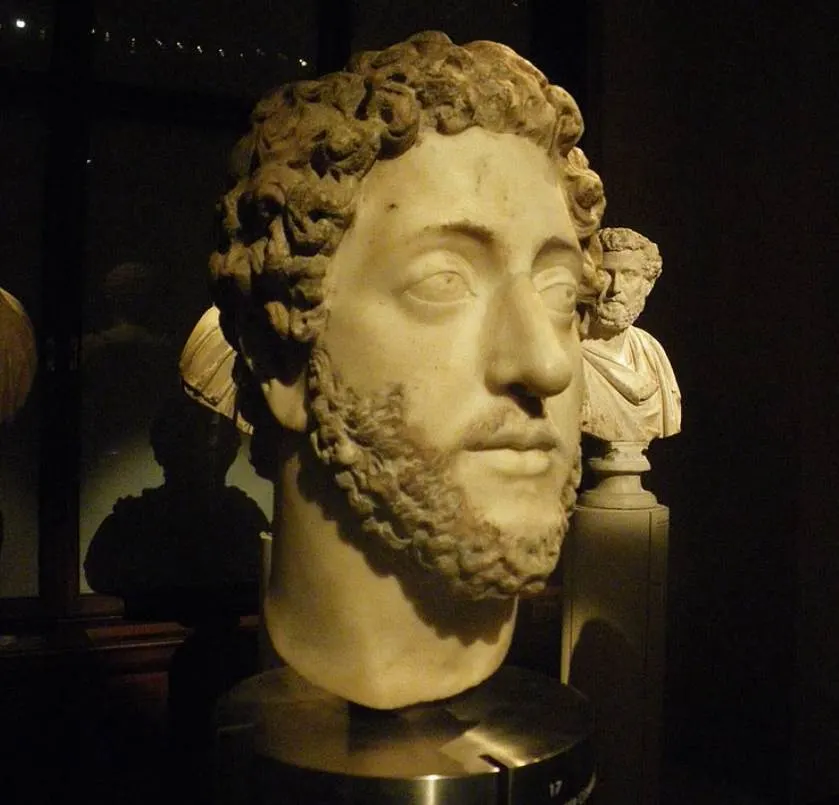
6. His sister conspired against him in 182 out of envy of his wife
One of the most interesting facts about Commodus is that he also had 4 sisters, all of whom had husbands who were eager to interfere in running the Empire.
His sister Lucilla, who was 10 years his senior, even held the title of Augusta because she was the widow of former Roman Emperor Lucius Verus who presumably died during the Antonine Plague in 169.
This partially explains why she was jealous of Commodus’ wife, Empress Bruttia Crispina, whom he married at the age of 16. Because of this, she plotted a conspiracy against her brother with two of her presumed lovers named Quadratus and Quintianus.
They didn’t manage to kill Commodus but were arrested and subsequently executed. Lucilla was exiled to the island of Capri and murdered later on.
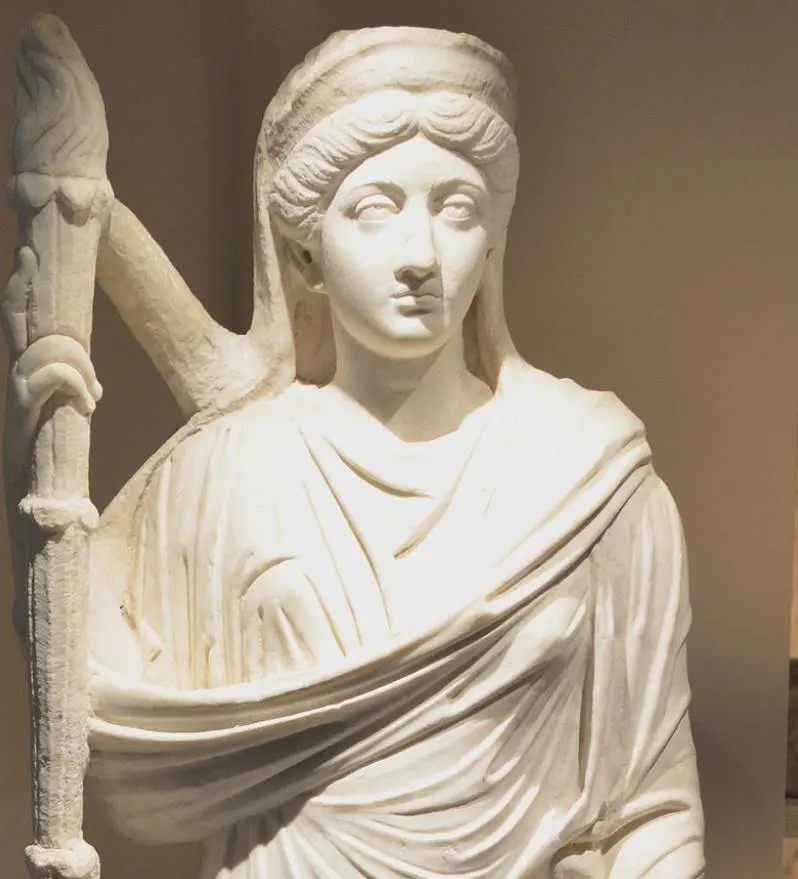
7. He had his closest ally beheaded in the Spring of 190
The plot of his sister also involved the murder of her brother’s closest ally, a man named Saoterus who basically did most of the work the emperor should have been doing. Needless to say that Commodus didn’t take his assassination lightly and quickly looked for a replacement.
He found him in Cleander, the man who actually killed Saoterus. This proves that Commodus was weak-minded and easily manipulated so he spent most of his time in his estate outside of Rome indulging in sports such as gladiator fights and chariot racing. After all, he was physically really strong.
When Cleander made a mess of things and a food shortage arose in Rome in the Spring of the year 190, Cleander was accused and chased by an angry mob. He managed to reach the house of Commodus but that wasn’t the best idea.
He had him beheaded at the request of the angry mob and his son was killed as well.
8. He went completely off the rails in the year 191
Commodus had always been the type of Emperor who liked to show off his uniqueness and power, even though he was really a weakling with few talents. After the events in the early 190s, he seemed to have lost the plot completely.
Countless statues were erected all around the empire depicting him as Hercules, a warrior who fought against men and beasts. He also claimed to be the son of Jupiter, the supreme god of all Roman gods.
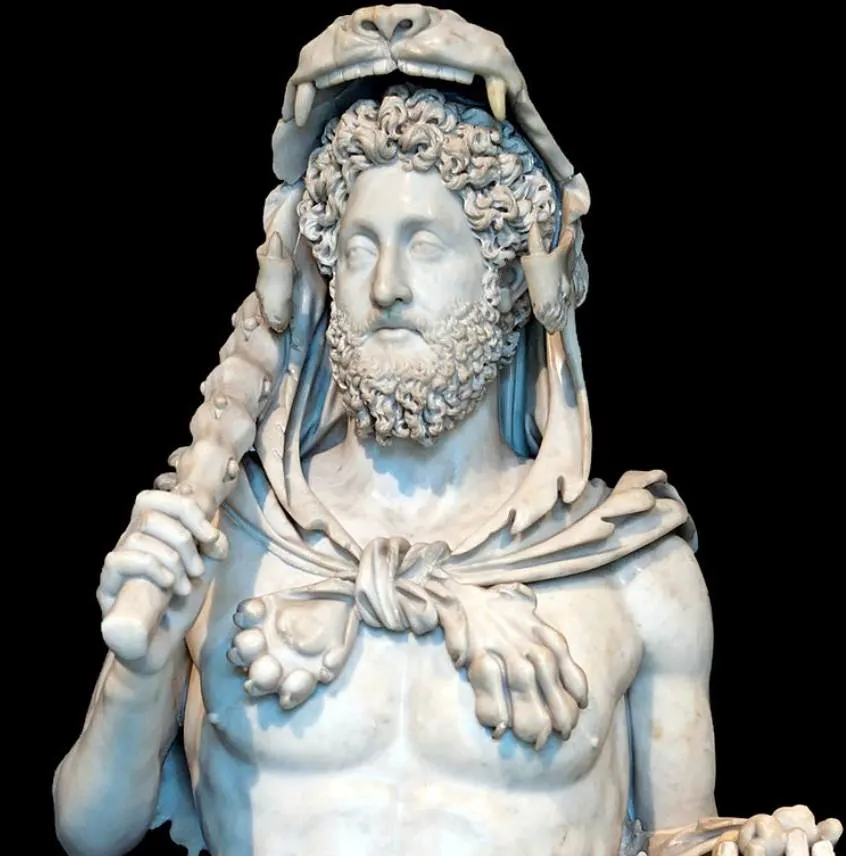
9. He renamed all the months of the year to correspond with his
His erratic behavior took epic proportions when he started renaming things all across the Roman Empire. He officially re-founded the city of Rome and named it “Colonia Lucia Annia Commodiana,” and all Romans were to be called “Commodianus.”
The legions were renamed “Commodianae” and the fleet which brought the grain from Africa was renamed “Alexandria Commodiana Togata.”
This wasn’t enough yet so he renamed all the months of the year as well as his own name. If he would have had his way in the long run, we might be calling the months of the year Lucius, Aelius, Aurelius, Commodus, Augustus, Herculeus, Romanus, Exsuperatorius, Amazonius, Invictus, Felix, and Pius, today!
10. He was assassinated after he declared himself the new Romulus
His behavior was uncontrollable and just like many Roman emperors like this before, serious plots to assassinate the crazy leader were established. The successful one initially failed because he vomited the poisoned food he was eating on December 31, 192.
Because this didn’t work, a wrestler named Narcissus eventually strangled him to death in his own bathtub that same day, ending the life of a man who had declared himself to be a god.
Even though his body was buried at the Mausoleum of Hadrian, now known as the Castel Sant’Angelo in Rome, the Senate instantly declared him as a public enemy and ordered a “damnatio memoriae.” This means that all signs of his existence were to be removed from history.
This was reversed in 195 by the winner of the civil war that ensued following his death. This resulted in the so-called “Year of the 5 Emperors,” which ended at the start of the reign of Septimius Severus and the start of the Severan Dynasty.
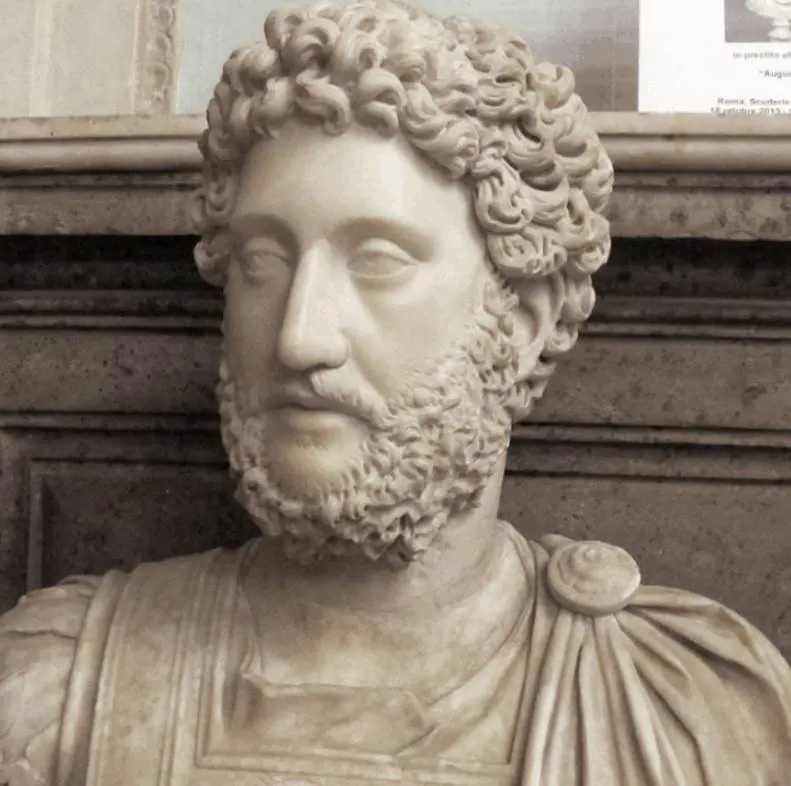
11. His hobby was slaying animals and fighting people at the Colosseum
Administrative tasks were never the occupation of Commodus as he fully focused on his other career, that of an animal hunter, chariot racer, and gladiator. Most Romans thought this behavior to be well below his position and literally called it scandalous and disgraceful.
One of the most fascinating facts about Commodus is that he never actually killed a fellow gladiator while he was fighting at the Flavian Amphitheater, better known as the Colosseum. His opponents always surrendered to him, meaning he always won. Because of this, he never killed his opponents.
This doesn’t mean that he didn’t murder people in the arena though. He once had several people missing feet along with midgets grabbed from the streets of Rome, tied up, and beat him to death with clubs.
The horror show was equally grotesque when he killed animals in the arena during beast hunts. He once killed 100 lions in one day, followed by 3 elephants and a giraffe.
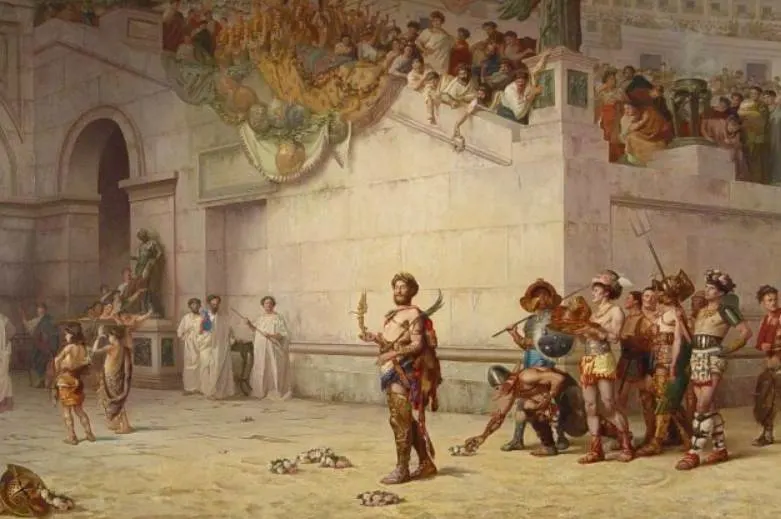
12. Even though he became cruel, he wasn’t considered to be born this way
Most contemporary and modern historians consider Commodus to be a weakling who was easily manipulated. Therefore, he sought recognition through cruelty and extreme self-indulgence. In that sense, Joaquin Phoenix’s portrayal of the man in the blockbuster movie “Gladiator” was pretty accurate.
The contemporary historian Cassius Dio described this as being “led on into lustful and cruel habits, which soon became his second nature.” He also mentioned that he was “not naturally wicked but, on the contrary, as guileless as any man that ever lived. His great simplicity, however, together with his cowardice, made him the slave of his companions.”
Even though there weren’t any major wars during his rule, he ended the relative peace in the Roman Empire and never became a contender for following in his father’s footsteps as one of the so-called 5 Good Emperors.
